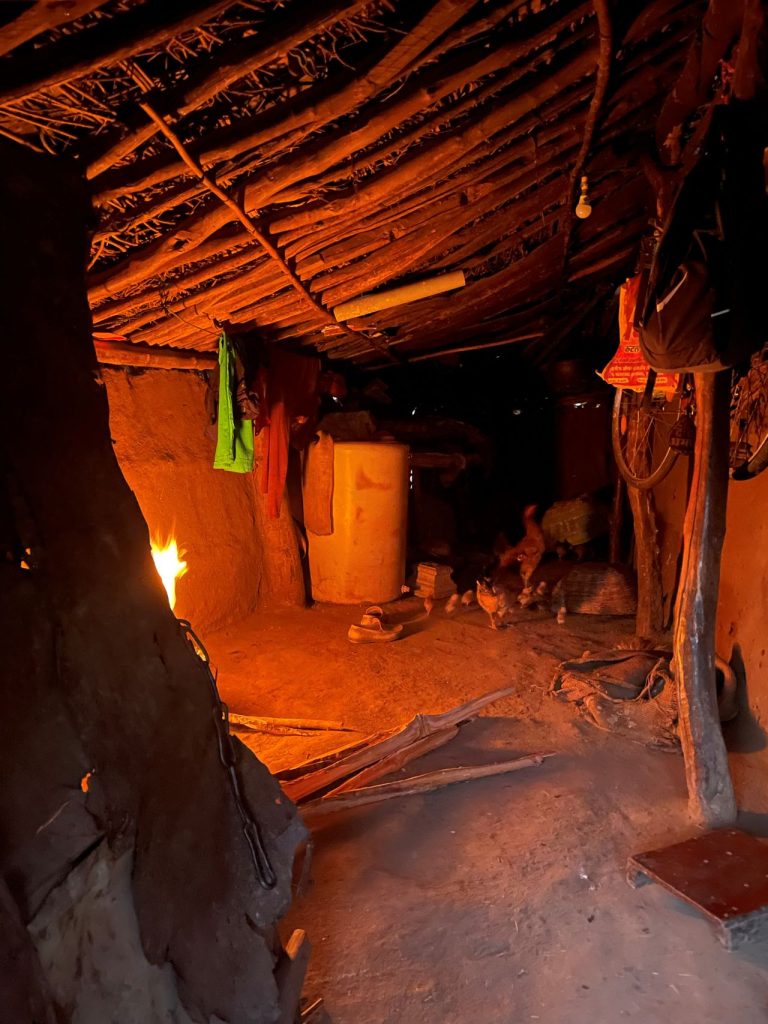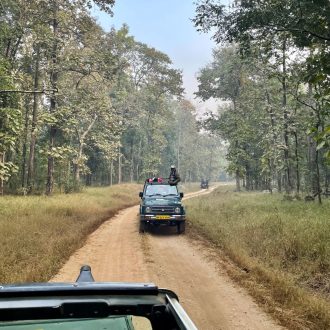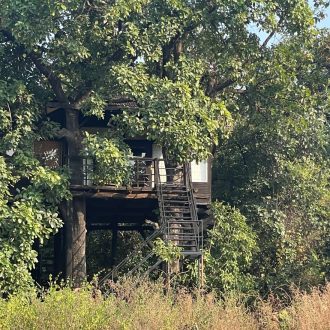Responsible Tourism Initiatives in Mandu
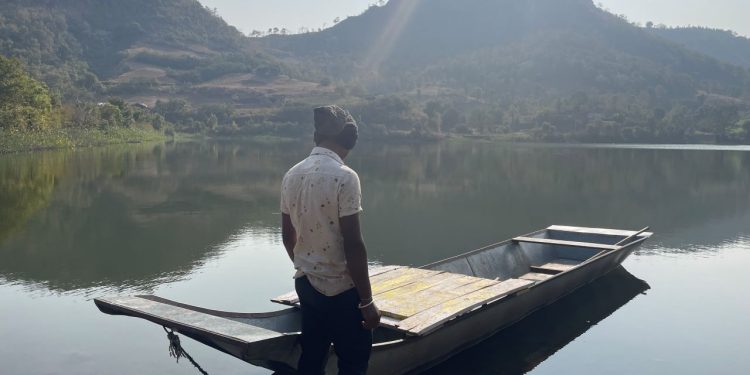
It’s a warm day but adding to the warmth are my hosts, Dinesh and Radha Bai Katare as they prepare a simple but delicious lunch of Dal Paniya. While the dal is being cooked separately, the couple with their extended family sit around the fire, cooking the paniya , for all of us. The round bread made out of corn flour is sandwiched between leaves of the local aak or madar ( sodom apple) and then roasted on the fire. Sipping a glass of local chaas or buttermilk, I am fascinated as Radha, with her nimble fingers, tosses the bread back and forth until the leaves are burnt and the bread turns golden brown. She deftly removes the charred leaves away while we gather around to taste the delicious dal paniya and listen to their stories and about the initiatives of rural and responsible tourism in Mandu, around the villages in Mandu.
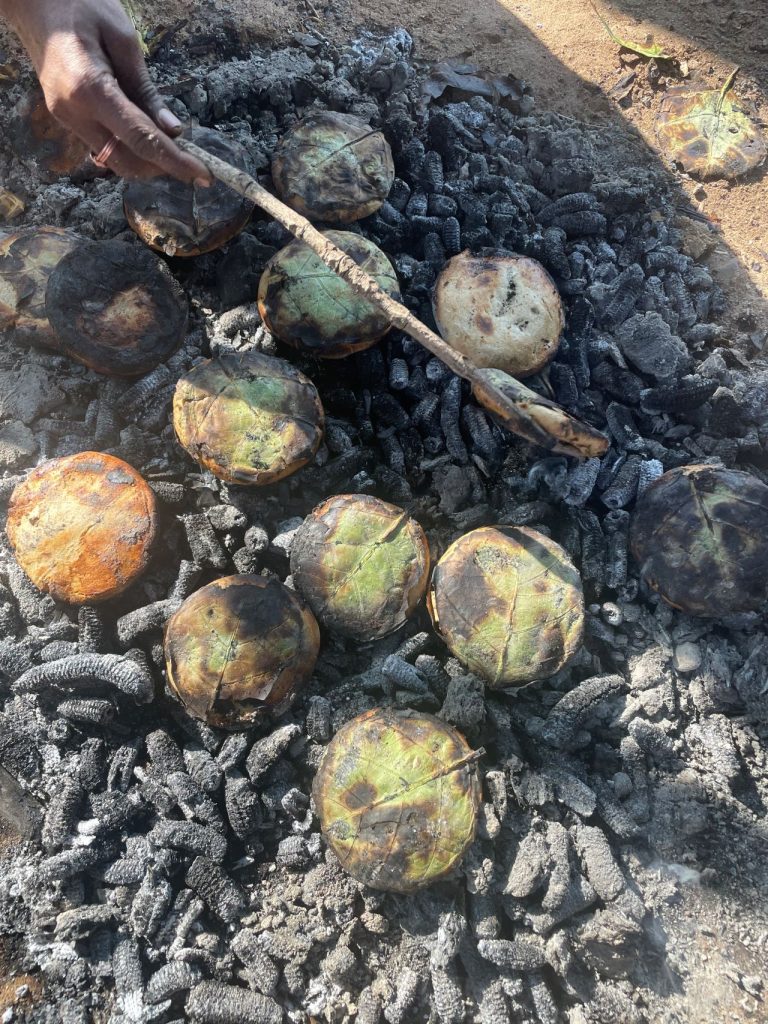
Dinesh is a young fisherman and a farmer whose small and charming homestay stands on a little raised mound next to his abode, overlooking a lake. While a part of it is still under construction, Dinesh shows me around while I lose myself in the verdant greenery around me. There are no manicured lawns and gardens – just a smattering of local flowering and fruit trees and herbs and shrubs and even wild plants.
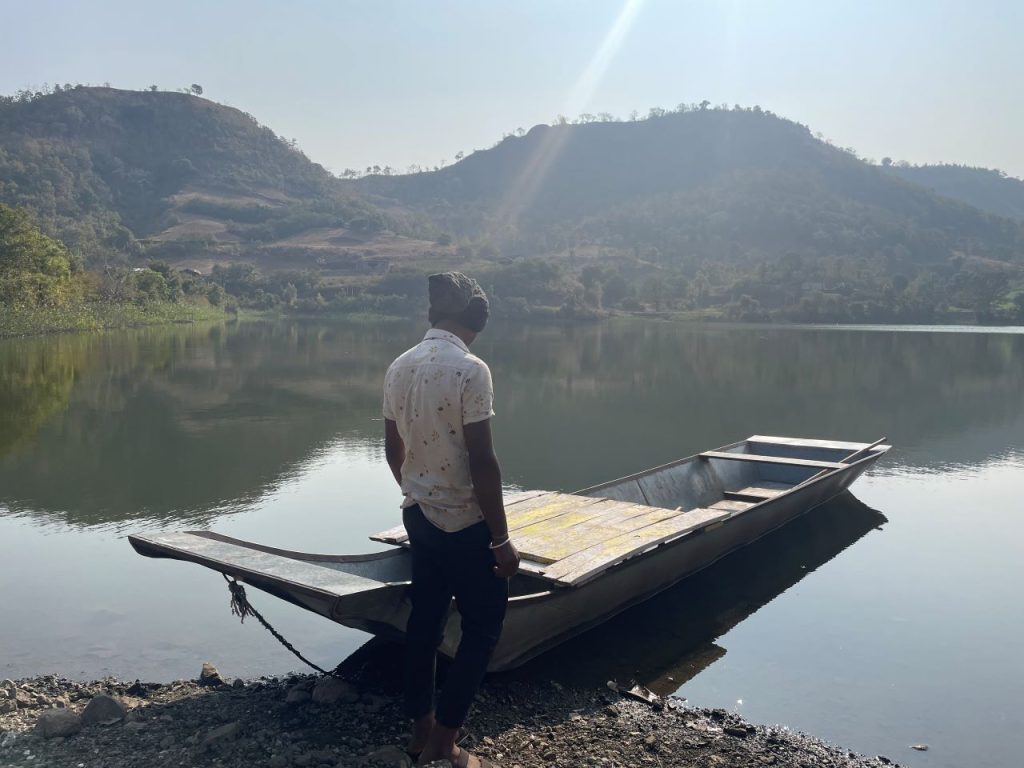
I am in the village of Malipura, located just five kms from the heritage town of Mandu or Mandav, lost in its own beauty. The tribal village is an oasis of calm, surrounded by mountains and forests. At the heart of the hamlet is a placid lake and Dinesh adds that he ferries people who want to go boating. The lake is a destination by itself and is now popular with couples who visit Mandu for pre-wedding shoots. ” A couple of photos on the lake are mandatory for every couple.” says Dinesh adding that sometimes shoots can take over half a day as well and he serves them lunch at his homestay. Malipura is one of the villages near Mandu that are being developed for rural and responsible tourism in Mandu. Totally five villages near Mandu will be developed amd around 30 homestays will be built here .
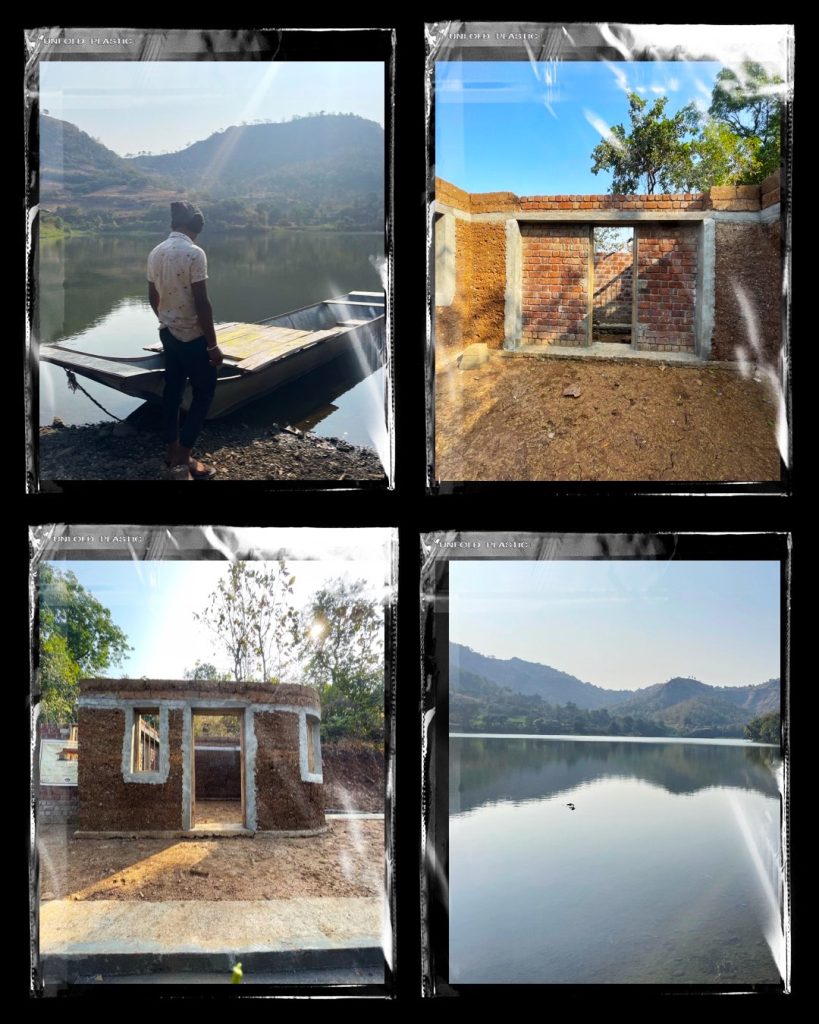
Given its proximity to Mandu, Malipura is now developed into an idyllic village as a part of the rural and responsible tourism in Mandu. There are five homestays being developed here. Besides Dinesh’s home, I visit a couple of more homestays that are run by the families of Govind Katara, Kishore Katare, and Virendra Katare. It’s more like a farm stay as I spend a few hours interacting with the families while immersing in the local cultures. All the farmers grow both local and seasonal vegetables and fruits like bananas, custard apples, and papaya besides crops like wheat, corn, and a variety of local millets.
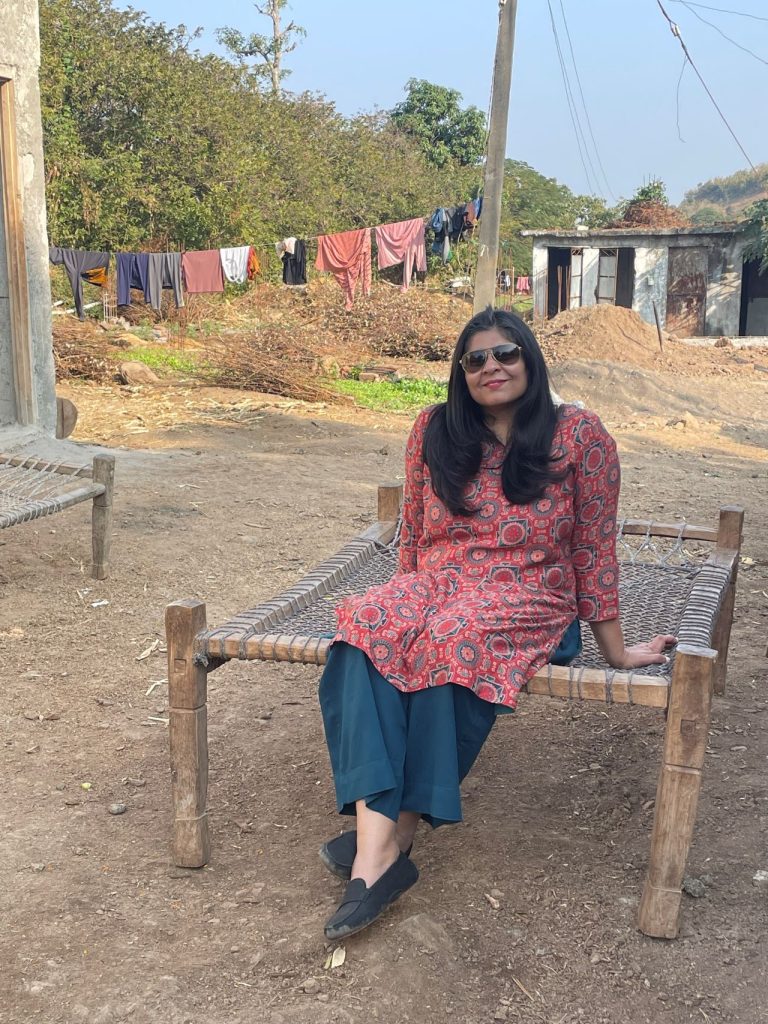
The local community is at the core of rural and responsible tourism initiatives of Madhya Pradesh tourism. From nature walks to storytelling sessions, every experience here is authentic. You can lose yourself aimlessly in the farmlands or go fishing or try your hand at cooking local cuisine or even participate in local cultural activities. And as a traveller, just soaking in the rural vibes is more of a meaningful and mindful experience in itself. During Mandu Festival, the villages around the historic town are buzzing with tourists and hence the tourism board is focussing on developing not just homestays but also village excursions and experiences. One of them is Bheelbarkheda, home to the Bheel tribes. Located in the Nalchha Block of Dhar District the village, located near Mandu offers a combination of adventure and cultural activities as a part of responsible tourism in Mandu.
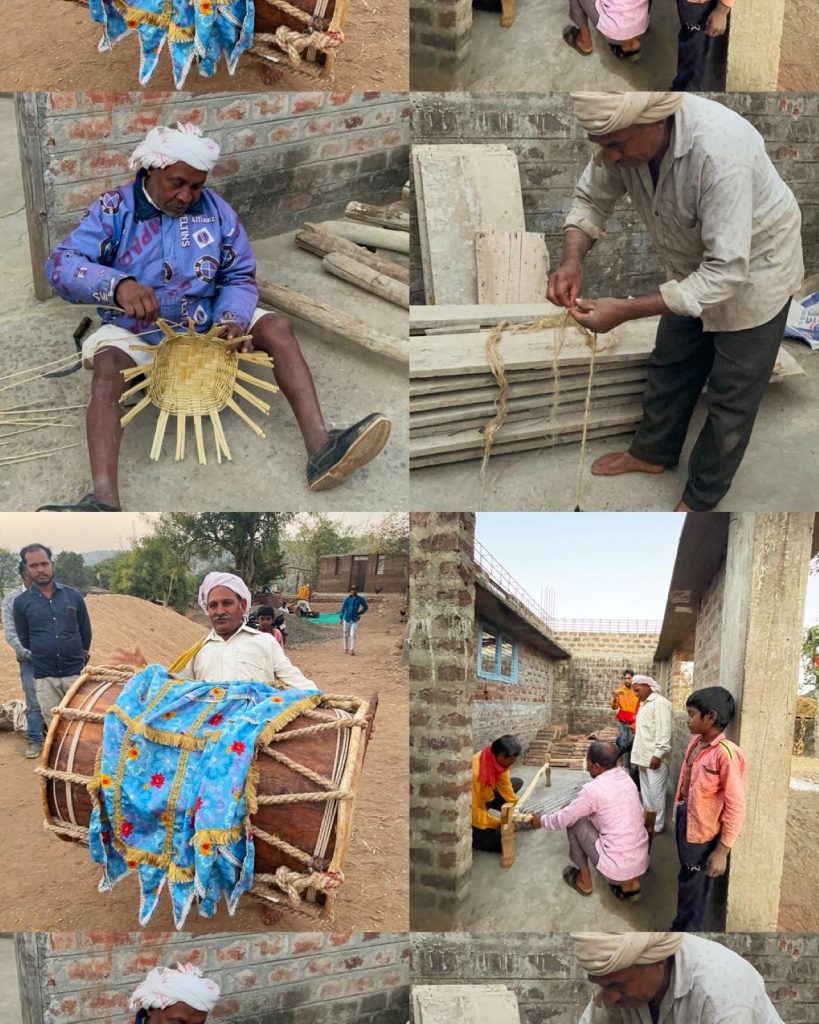
It is almost late evening when I head there after a quick visit to Mandu but am greeted with tribal music and dance. As we sip local tea, I am fascinated by the massive dhol called Mandal played by Ramsingh, who teaches me to play it. The homestays are also in various stages of construction and I meet some of the owners. One of them is a mason Ramcharan and his wife Parvati who tells me that his daughter is studying home science and will assist him after her graduation. The atmosphere is vibrant and colourful as the entire village turns out to greet us.
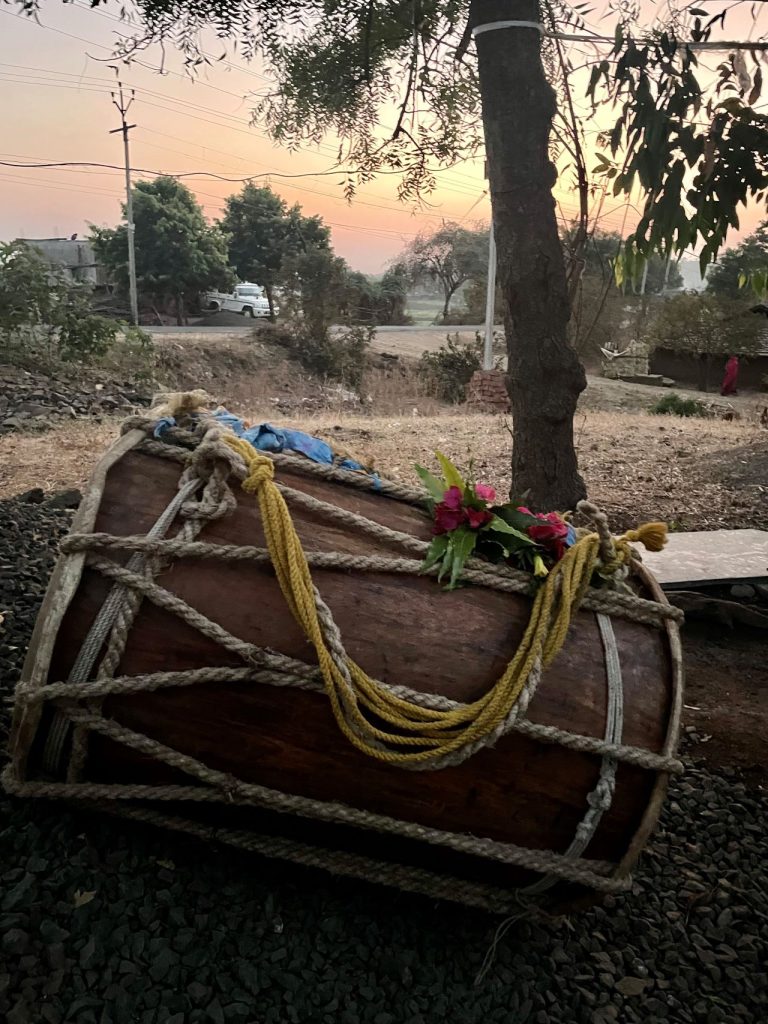
Artisans who create crafts with bamboo showcase their skills as workshops are being planned to display forgotten and lost arts and crafts. You can also see several activities like making traditional wooden furniture, ropemaking and weaving especially on cots among others. Besides traditional music and dance, there are also visits to local temples and farmlands. The heart of this village also has a lake named after the hamlet while guided walks and treks are also conducted especially to Budhi Mandav where am told that you can see the origin of the Nalchha River. It’s too late to go exploring but as I head back, I can see the pride in the eyes of the locals who are full of stories and want to showcase their village to you.
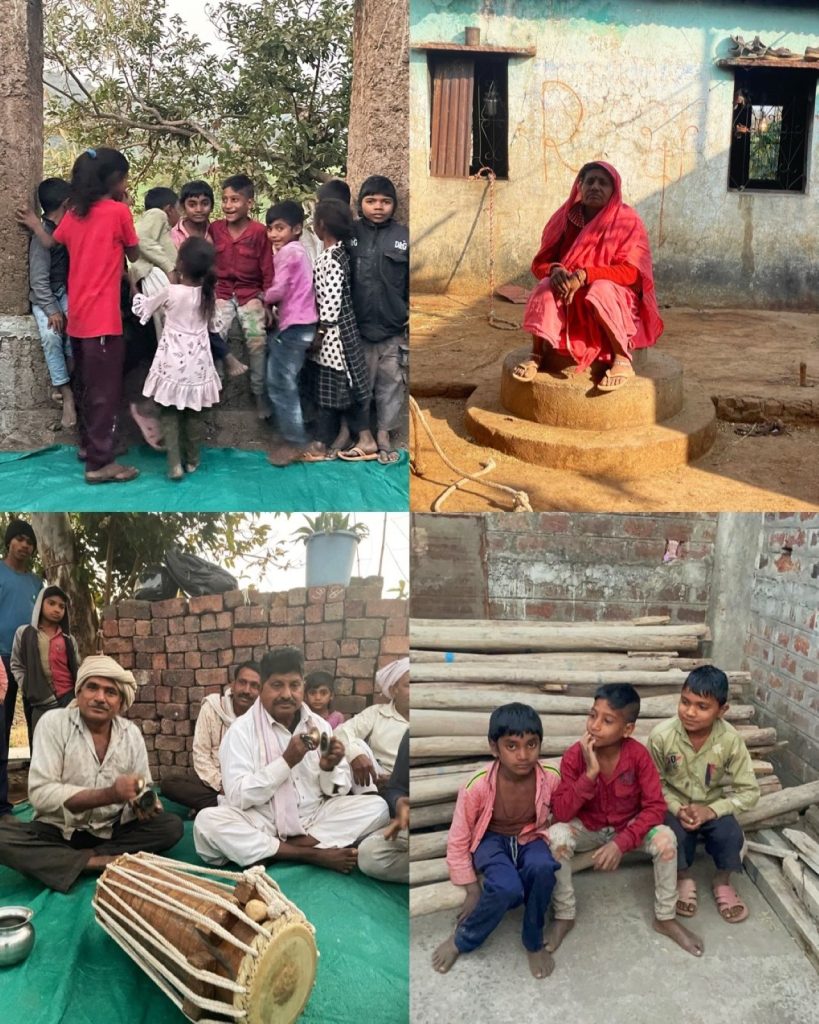
Travel is not just about sights and sounds. It’s also about sustainable and local experiences, conversations and interactions with the communities, immersive cultural trails, and delving deeper into their lives and learning and contributing to livelihoods. Sometimes it means just simple conversations over chai ( tea ) with the people while they share their stories with you. It’s also a learning experience of understanding different cultures and traditions while maintaining boundaries and respecting personal spaces. And this is at the very core of responsible tourism initiatives of Madhya Pradesh Tourism. Lost arts and crafts, forgotten skills and talents, simple, homemade, local cuisines, and traditional backyard games – these are some of the authentic rural experiences that travellers can appreciate and partake in.
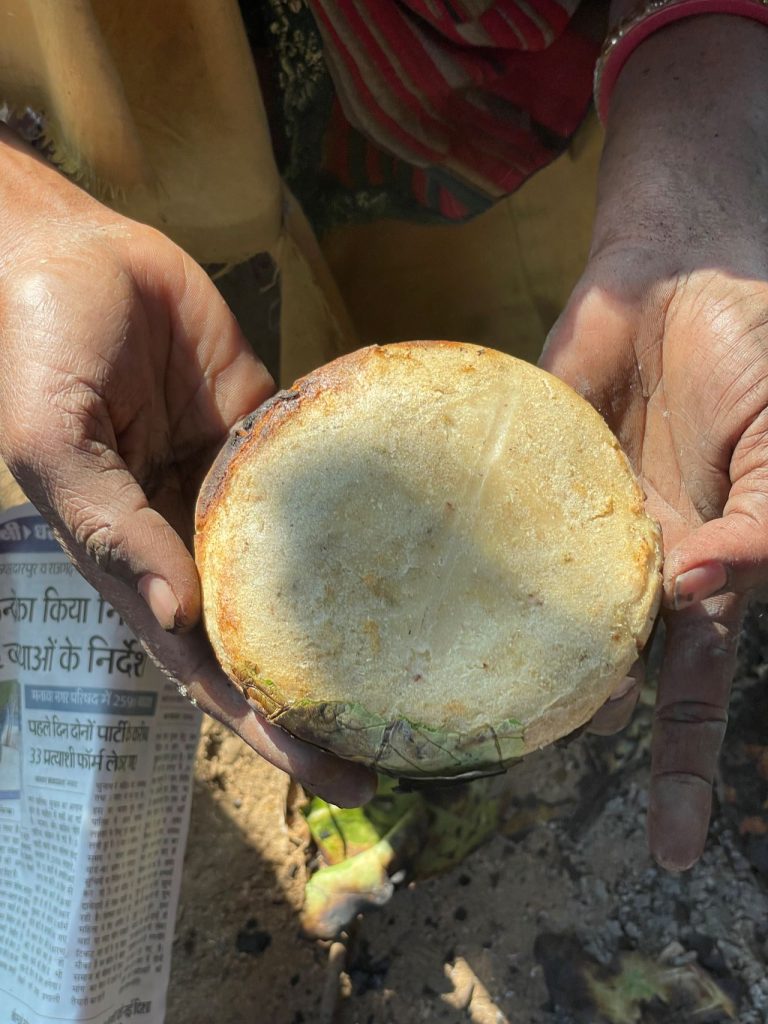
The rustic experiences are developed in every village, keeping in mind the social, cultural, religious, art, music, dance, and other activities and these are further enhanced with storytelling. While these are unique to communities and tribes, every place has its own charm. For most of us, travel is often about exotic destinations but we realize that every place has its own appeal and sometimes the most nondescript places are treasure troves as well, waiting to be discovered. Villages are a microcosm of culture as they give a glimpse of the social traditional and religious practices and local arts, architecture, crafts, festivals, music, dance, and performances. The delicious local cuisine, the rustic games, the unique customs, and the natural scenery all add to the charm. Every villager is a born storyteller who is excited to take you around his hamlet and we just have to give them a chance.
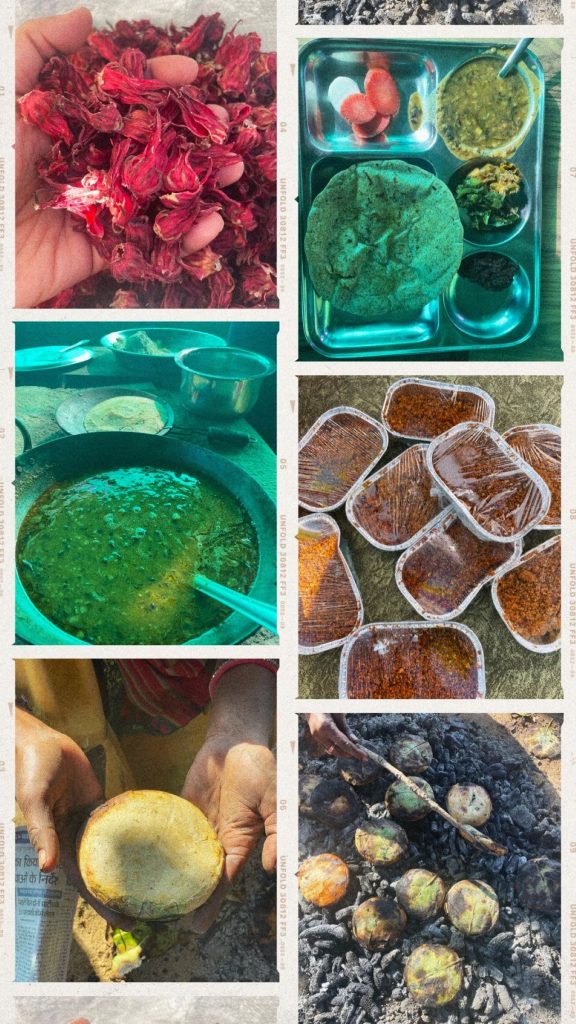
The community is at the core of all the responsible tourism initiatives of Madhya Pradesh Tourism and be it promoting women empowerment, developing local arts and crafts, protecting eco-sensitive regions, creating homestays or promoting rural experiences, or focussing on rural tourism, it is all about enabling social entrepreneurs and NGOS to support and train local communities. And one of the tenets of their policies is to develop sustainable travel in Madhya Pradesh. And that includes bringing the travellers into the fore and sensitizing them to contribute to the livelihoods of the local community, be they artisans or guides. Community-led and community-driven, travellers get to explore and understand the forgotten and lost cultures and customs through these initiatives.
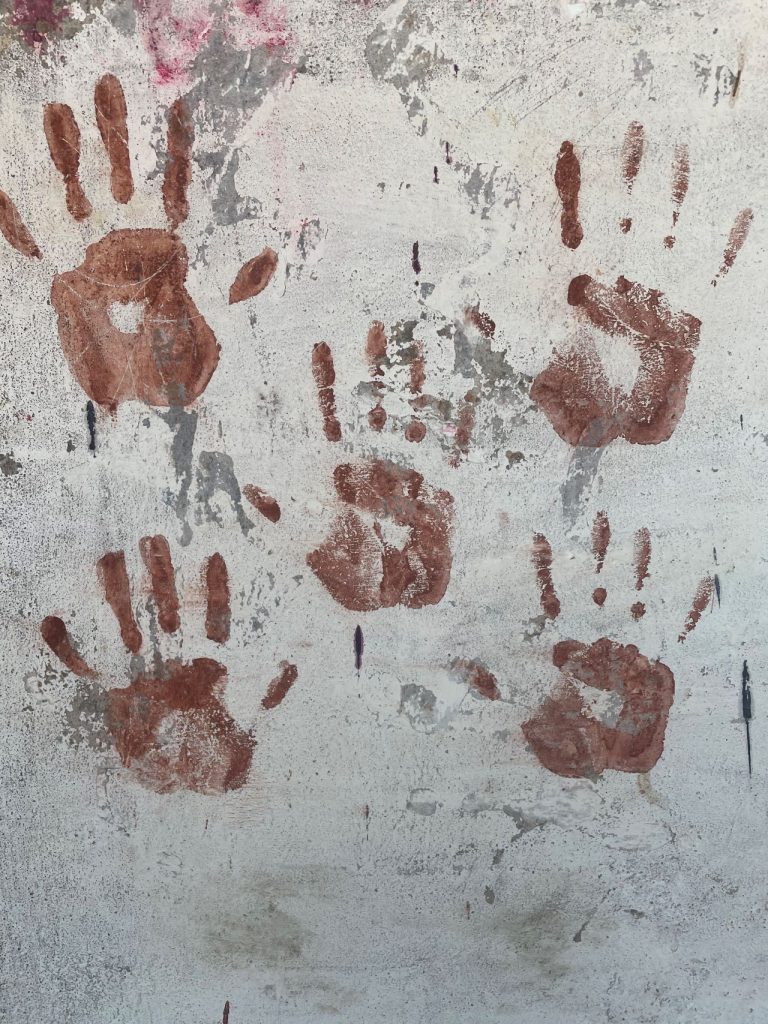
In one of my earlier trips to Madhya Pradesh as a delegate with the ICRT team, I learnt about villages like Ladpura Khas which became the poster child of responsible and rural tourism initiatives of Madhya Pradesh. Located less than 10 km from Orchha, this village was nominated by UNESCO as well and it was being developed with.. homestays and several local and rural experiences. Ladpura Khas, like Malipura is one of the 100 villages to be developed by MP Tourism for their rural tourism initiatives and homestays remain at the core of this development, creating livelihood opportunities. Each of these villages is chosen as they are around tourist hot spots. While Orchha is the nucleus for Ladpura Khas, Mandu is for Malipura.
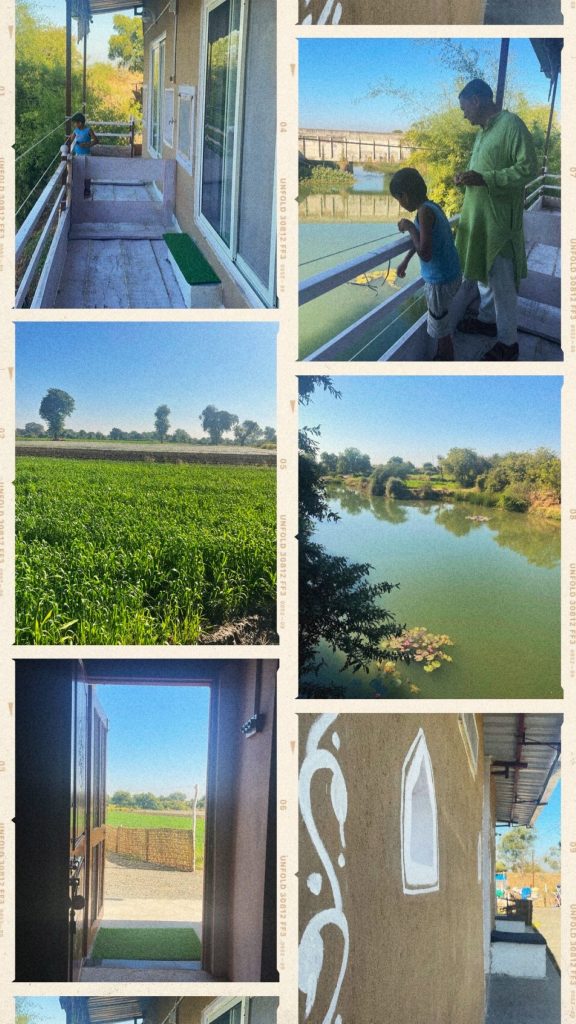
Beyond homestays around villages near Mandu there are also farm stays as well around other tourist towns. I stumbled upon Tarangini Farm Stay located near Maheshwar which is an oasis of calm. One of the core objectives is to promote verdant villages around tourist circuits and to develop and market existing homestays and farm stays as well. And Tarangini farm stay fits directly into this overall master plan. While Maheshwar is just 10 kms away, you can lose yourself in the farmlands, watch birds by the lake, spend quality time with the hosts, relish local cuisine, or just detox and relax.
